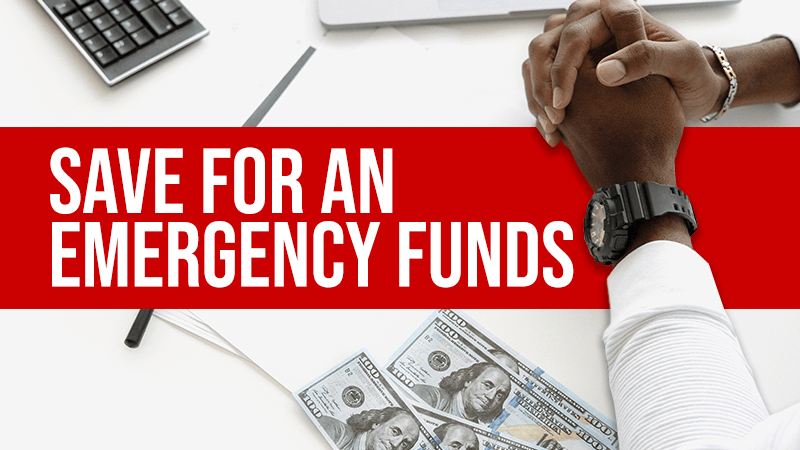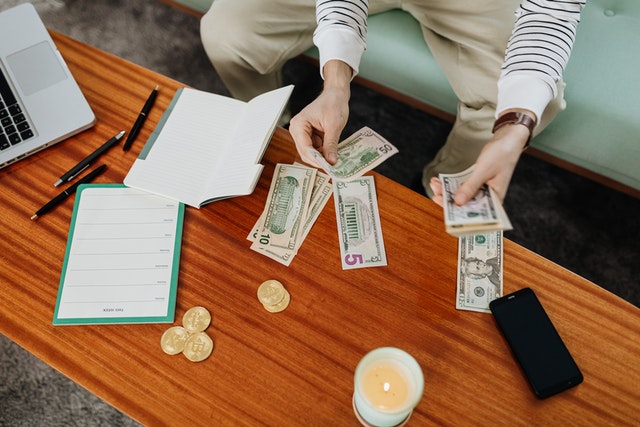Reasons Why You Need To Save For An Emergency Funds
Share this content :

How do you picture your life in the following years?
Think of everything that you expect to pay for, from rental fees to student loans. Now, check your finances right now. List everything that you have, including your income and savings. Do you feel confident in what you can afford?
Like you, many of us are sure that we can handle any incoming expenses for the next few years. Whether it’s to pay off the veterinarian or to buy a new car, we often think that it’s all calculated. However, things can change instantly. Traffic accidents, natural disasters, and medical operations could be needed at any moment. Surprises like this can cost hundreds, if not thousands, of dollars at a time.
These are what we call “unexpected expenses” or “emergency expenses” and they can be costly, no pun intended. The best way to ensure you cover these costs is with emergency funds. Here’s why unexpected expenses need more attention and how you can start building your emergency funds immediately.
The Dangers of Unexpected Expenses
First, we should go further into what exactly unexpected expenses are. Many people think that this term means the hidden bills you pay at least once a year, if not more. For example, you pay annual fees for medical checkups and life insurance policies. The difference between these occasional bills and unexpected expenses is that you still get an update on when your bills are due. If your yearly physical is on the way, you’ll be informed ahead of time. For insurances and mortgages, you may also set a specific annual date to pay your dues. In other words, these costs are still planned ahead of time.

This is the complete opposite case for unexpected expenses. These costs can occur at any moment. Think of the examples before, such as car collisions and viral infections.
They have no specific time or date of when they strike. What makes unexpected expenses dangerous is that their prices can be high. For example, a trip to the emergency room can cost up to 3000$ for a single accident. If you have to stay in the hospital for treatment, your bill may rise to five-figure receipts.
Other examples include pet emergencies, where surgery can cost between $300 to $6000. Sometimes, you may need to travel across the country and spend a week caring for a sick family member or close friend. You could also suffer heavy costs to repair your house or apartment after a tornado or electrical fire strikes.
While there are safeguards to mitigate the expenses, such as insurance plans, they can only go so far. Not everyone can afford insurance policies, much less predict their exact coverage needs. Those who are caught unaware may have to resort to loans, but those can require payment back with interest. Given these options, you might be wondering what is the best plan to take for unexpected expenses. That’s where emergency funds come in handy.
The Importance of Emergency Funds
An emergency funds meant to be used only for the most unlikely dangers and worst-case scenarios. You can start saving for emergency funds either in cash or in a separate bank account. With an emergency funds, you can pay off any bills or costs that your regular savings would have otherwise been unable to cover.
For example, if they announce tomorrow that the country is in recession, can you manage without emergency funds? Despite your best efforts, inflation has skyrocketed, and you had to leave your job. While this scenario sounds impossible, how much safer would you feel if you had emergency funds? If you had to stay afloat for six months with no means of income, then having some emergency funds stored away for disasters like this would help a lot.
What’s also useful about emergency funds is that they keep you from having to sacrifice other things in your life. Some people have had to surrender their homes or sell their cars just to meet the price of an emergency. By planning ahead and saving some money only for the emergency funds, you can pay off all those costs without losing your other investments.
Ways to Build Your Emergency Funds
Building emergency funds require discipline. You need to set aside some money from your regular income. More importantly, unlike your savings, you should not withdraw from emergency funds until it’s needed. This can be tricky for people who like to spend impulsively or have many bills to cover. However, that’s why we’re here to help. Check out these four tricks to building up that emergency fund as quickly as possible.
Automate Your Deposits
Saving money for emergency funds is easier when it’s already out of reach. One of the benefits of modern banking is that you can set an automatic deposit of salary whenever it arrives. By the time you get your paycheck, a portion of it will be sent to a separate account for your emergency funds. You can also make further deposits once you get any tax returns.
Set Realistic Amounts
Some people think that they have to deposit as much money as they have to kickstart their emergency funds account. While it’s recommended to save up to six months’ worth of emergency funds, you don’t have to go big on the numbers at once. Start saving by setting a realistic amount of cash you can part with. Make sure the remaining amount will be enough to cover your weekly or monthly expenses. Starting small can also help you ease into the routine of depositing for your emergency funds. Once you feel comfortable and earn or save more, you can increase how much you deposit at a time.
Reassess Your Current Expenses
Sometimes, what you spend now will be a waste when you think in hindsight. What you buy will have an effect on how much cash you can spare, especially when you’re saving for emergency funds. Think carefully about the things you plan to spend on. If it’s not necessary to your life, think about how much you need it. We’re not saying you shouldn’t spend on things for yourself, but it’s important to know when to reward yourself and when to hold bac
Avoid Over Contributing
Contributing a good amount for your emergency funds is always a smart move. However, there’s a fine line between giving enough and giving too much. Some people tend to go overboard and take money from their savings or loan cash to get their emergency funds filled. Again, the trick is to know how much emergency funds you need. In this case, don’t deprive yourself of too much cash for the future. You can always keep a certain amount to enjoy your hobbies or outings, as long as you record it properly.
Remember, emergency funds is for emergencies, so while it’s important, it shouldn’t stop you from enjoying your life.
In Summary
Unexpected expenses can be a shocking blow to those who are financially unprepared. They might be facing medical issues or housing repairs that cost more than an arm and a leg. To keep themselves safe from future, unplanned costs, we recommend starting emergency funds. This can use the money saved now to protect their investments, from cars to health. By having emergency funds, people can rest easy and know that they have enough money to respond to any expensive scenarios in the future.
You can check our new video about saving money for emergency funds during inflation.
Share this content :
Copyright © 2023 Munif Ali. All rights reserved.

